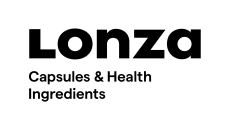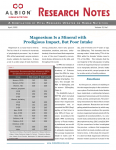New study says targeted email reminders may increase consumer nutrient intake compliance

Published in the journal Annals of Behavioral Medicine, the researchers designed the study to see how messages should be tailored and targeted in a way that will help recipients increase dairy consumption for its calcium.
“In Canada, 72% of women and 65% of men aged 31–50 years fail to consume the recommended number of dairy servings per day (<2 servings/day). In the USA, 44% of men and 70% of women aged 31–50 years fail to consume the recommended dietary intake of calcium (1000 mg/day), even with the use of calcium supplementation,” the researchers wrote, citing a 2010 study published in the Journal of Nutrition.
Researchers sent one email each day over four days to 730 Canadians who aren’t meeting recommended calcium intake, and found that just these four emails, arriving in email boxes early each morning, resulted in an increase of more than 200 milligrams of calcium each day in participants—which was maintained four weeks after the emails were sent out.
Recruiting the participants
Participants were selected if they were between 30 and 50 years old, consumed less than two servings of milk or milk products per day, and had no health or religious reasons to avoid milk and milk products.
The final 730 participants were selected from 2516 individuals who completed an eligibility survey advertised through social media. This number came from a calculation on the degree of change expected in milligrams of calcium from dairy. Using guidelines from previous similar interventions, researchers believed the present number has “sufficient power to detect changes in milligrams of calcium from dairy.”
For four days consecutively starting on the same day, participants received an email reminder in the mornings that included a survey at the end, Participants were incentivized to complete the survey with $5 Amazon gift cards for each survey completed.
Dairy consumption changes were all self-reported using a modified version of the Calcium Calculator developed by the British Columbia Dairy Foundation. individuals were asked to indicate the number of portions they ate of the 10 dairy products included in the list. A portion size was explained for each product. “This modified, 10-item tool was used to determine total milligrams of calcium from dairy consumed by participants on the previous day at baseline, week 1, and week 4 post-intervention,” the researchers wrote.
Message development
A total of 40 messages were created, eight messages for each of the five conditions: gain-framed, loss-framed, self-regulatory efficacy enhancing, grain-framed plus self-regulatory efficacy enhancing, or loss-framed plus self-regulatory efficacy enhancing.
The eight messages for each five conditions were broken down by gender, four email types for women and four for men. Example differences include, in the gain-framed one, emphasizing dairy’s nutrition content to general health benefits to women, and emphasizing health, fitness, and protein content to men.
At the end of the study, researchers found calcium intake, self-regulatory efficacy, and outcome value increased in all message conditions, and that providing population-specific information as well as tailored “how-to” strategies were effective in promoting calcium intake from dairy products short-term in adults.
“Interestingly, self-regulatory efficacy beliefs increased across all the five conditions even though efficacy-enhancing content was not explicitly provided in the gain- or loss framed conditions,” they wrote.
“Perhaps the content of the GF and LF messages was sufficiently influential enough to prompt individuals to consume dairy products, thus resulting in a successful mastery experience that bolstered their self-efficacy beliefs.”
Will it work for dietary supplements?
Boosting consumer compliance in taking nutritional supplements is a big task in the industry, so can manufacturers benefit from these research findings? Commenting on the study independently, Jeff Hilton, chief marketing officer of natural products industry branding firm BrandHive says the conclusions seems too preliminary still.
“Most people would only want or heed emails from a respected and vetted source. Certainly not from some stranger and probably not from a brand. Preferably from a health care professional or subject expert of some type,” he told NutraIngredients-USA.
“My guess is that this type of “reminder” approach would only be effective for a food or supplement that an individual is taking regularly anyway and may lapse in usage from time to time,” he added. “Compliance is difficult to measure, police or incentivize. The benefits to the consumer must be readily apparent and important or relevant to them.”
Source: Annals of Behavioral Medicine
Published online ahead of print, doi 10.1007/s12160-016-9828-2
Targeted Messages Increase Dairy Consumption in Adults: a Randomized Controlled Trial
Authors: Mary E. Jung, et al.












